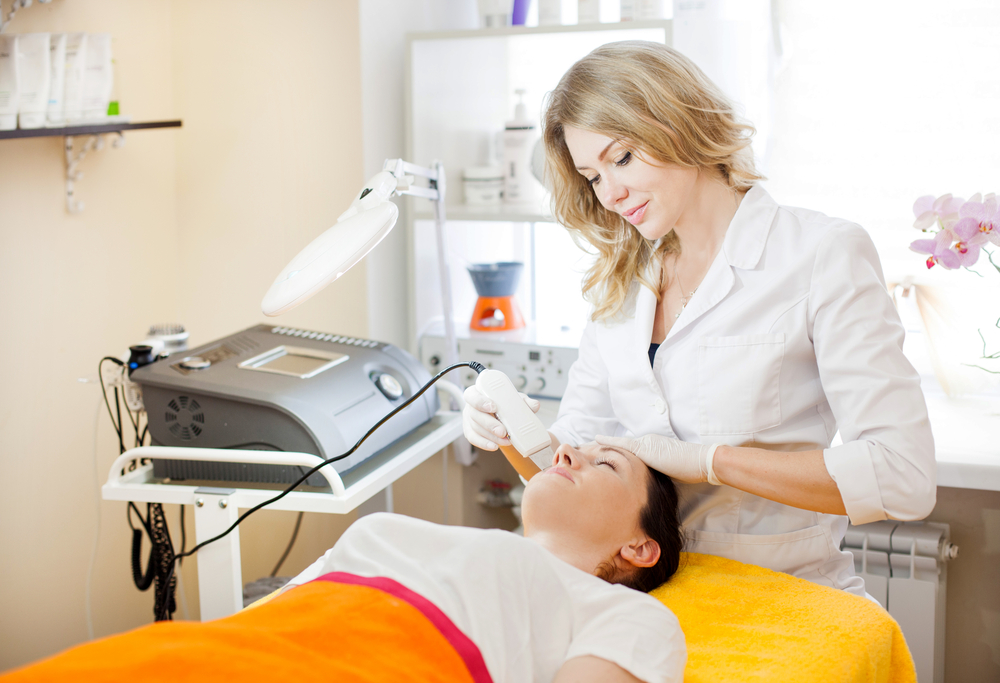In my teenage years I was lucky enough to be blessed with clear skin, and rarely suffered from acne outbreaks. As an adult I started experiencing skin hyperpigmentation, a fairly common condition caused by the overproduction of melanin in certain spots on the skin. Adult acne, which affects nearly 70% of grown women, also became an occasional concern. This made me start thinking about daily skin care, and what can be done to reduce aging without resorting to expensive and invasive procedures. Here’s a little personal advice, along with some pointers from a few of the country’s top surgeons.
1. Buy your skin products from a cosmetic doctor
You know how your hairdresser hates it when you color your hair with low-quality drugstore brands? Dermatologists and doctors feel the same way about the cheap stuff you use to treat your skin. Investing in products that are better suited for your skin type and complexion definitely pays off. One of my personal favorites is Jamie Kern Lima’s IT Cosmetics brand, which is 100% cruelty-free and was developed with leading plastic surgeons.
Dr. Elizabeth Rostan of Charlotte Skin and Laser also recommends physician grade skin care products, which are backed by research and clinical testing: “Turning to a dermatologist for skin care purchases helps patients avoid the hit-or-miss experience often associated with retail store buys.”

2. Your diet plays an important part in your skin’s health
According to the Mayo Clinic, antioxidant-rich foods such as carrots, apricots, and spinach seem to have a protective effect for the skin. Cosmetic surgeons such as Dr. Robert Zubowski of Paramus, New Jersey also suggest adding fish oil to your diet to improve your skin and overall health, and call our attention to “the role that fish oil supplements may play in disease prevention”. I can definitely vouch for this because I’ve added omega-3 fatty acids to my diet for the last six months, and I’ve noticed that my hyperpigmentation and acne outbreaks have significantly decreased.

3. Reduce the effects of stress on your skin
Dr. Neil Zemmel of Richmond Aesthetic Surgery shares some tips for everyday skin care that can be followed by everyone, without stopping by the pharmacy or doctor’s office. As a New Year’s resolution, try to avoid sweating the small stuff (literally!): “Stress raises levels of cortisol, which in turn ups oil production. Soothe away stress and sleeplessness with a 10-minute warm bath, and apply moisturizer while the skin is wet. This will help trap moisture in the top two layers of your skin.”

4. Sun damage can be controlled, and even reversed
It should come as no surprise to you that choosing the right sunscreen SPF (Sun Protection Factor) is an essential step to take in establishing a proper skincare routine. According to Dr. Zubowski, “wearing a daily SPF of 30 or greater is the best way to protect your skin from sun damage”.
Sun damage can also be reversed through a number of treatments such as laser resurfacing, photofacial rejuvenation, and chemical peels. Ultherapy is another safe, non-invasive medical procedure that has been available for 50 years, using ultrasound to improve the appearance of lines and wrinkles. Dr. Landon Pryor of Transformations Plastic Surgery, explains that “small amounts of soft tissue below the surface of the skin are targeted with heat that makes the tissue contract, which will trigger your body to create new collagen. The uniqueness of Ultherapy is its ability to deliver the heat to the right place without damaging the surface of the skin.”
I hope these words of advice will help you establish a healthy, effective skincare routine!










